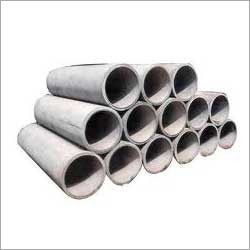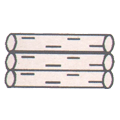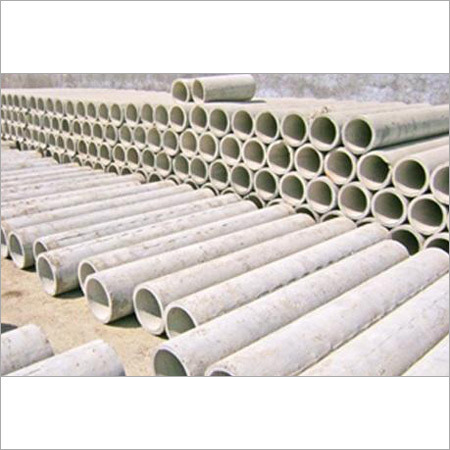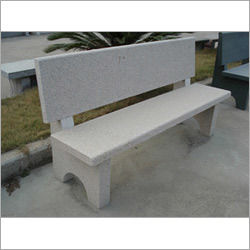Call: 08045804849
RCC Pipes
MOQ : 1 Piece
RCC Pipes Specification
- Connection Type
- Socketed / Spigot
- Tolerance
- 2 mm
- Flexibility
- Rigid
- Yield Strength
- Minimum 20 MPa
- Sealing Type
- Rubber Ring / Cement Mortar
- Coating Type
- No Additional Coating
- Diameter
- 150 mm - 2000 mm
- Tensile Strength
- Minimum 3.5 MPa
- Temperature Range
- -5C to 60C
- Bend Radius
- Not Flexible
- Product Type
- RCC Pipe
- Material
- Reinforced Cement Concrete
- Connection
- Collar Joint / Spigot & Socket
- Shape
- Other
- Standard
- IS 458:2003
- Surface Treatment
- Smooth Finished
- Outer Diameter
- 150 mm to 2000 mm
- Section Shape
- Round
- Length
- 2 to 2.5 meters
- Thickness
- 30-150 mm (varies with diameter)
- Color
- Grey
- Usage
- Water supply, Drainage, Sewerage, Irrigation
- Rated Pressure
- 2 to 6 kg/cm
- Application
- Sewerage, Drainage, Water Transportation
- Material Grade
- M40, M50 (as per requirement)
- Life Span
- 50 Years and Above
- Fire Resistance
- Non-combustible
- Corrosion Resistance
- High
- Water Tightness
- 100% Leak Proof When Properly Jointed
- Installation Method
- Trenched, Laid on bed, Jointed at site
- Load Bearing Capacity
- Heavy Duty, for high vehicular and structural loads
- Jointing Method
- Rubber Gasket or Cement Mortar
- Reinforcement Type
- Mild Steel / High Tensile Steel Wires
- Inspection Certificate
- Available on Request
RCC Pipes Trade Information
- Minimum Order Quantity
- 1 Piece
- Supply Ability
- Piece
- Delivery Time
- As per schedule Days
- Sample Policy
- Sample costs shipping and taxes has to be paid by the buyer
- Main Domestic Market
- Madhya Pradesh
About RCC Pipes
Backed by a team of skilful professionals, we are instrumental in offering high quality RCC Pipes. This pipe is fabricated by using reinforcement cement concretes which is toughest materials composition to deal with if you want to use the surface immediately. Our offered pipes are used for sewerage, drainage, culverts, irrigation and water supply lines etc. Our provided RCC Pipes are easy to shift and install or known amongst the user for their quality parameters and longer service life.
Engineered for Longevity and Heavy Duty Requirements
Our RCC Pipes are professionally reinforced and constructed to withstand high vehicular and structural pressures, making them ideal for large-scale infrastructure projects. With a projected life span exceeding 50 years and high resistance to corrosion, these pipes deliver enduring solutions for water, drainage, and sewerage systems. Their advanced material composition meets and exceeds IS 458:2003 standards.
Leakproof Assurance and Easy Onsite Installation
Jointing is accomplished effortlessly through rubber gaskets or cement mortar, ensuring a 100% leakproof seal when installed properly. The pipes are laid in trenches atop a prepared bed and jointed at the site, making the entire process smooth and efficient. This robust connection system prevents future water ingress or egress, safeguarding infrastructure integrity.
Versatile Application and Certified Quality
RCC Pipes are available in various diameters (150 mm to 2000 mm) and lengths (2 to 2.5 meters) for an array of applications in water supply, sewerage, drainage, and irrigation. Each batch can be supplied with an inspection certificate upon request, ensuring quality assurance for every project need.
FAQs of RCC Pipes:
Q: How are RCC pipes with heavy-duty load bearing capacity installed at the site?
A: These RCC pipes are installed using a trenched method: a trench is excavated, a bed is prepared, and the pipes are laid and jointed at the site using either rubber gaskets or cement mortar, making the installation efficient and robust.Q: What jointing methods are available and how do they ensure leakproof performance?
A: The pipes can be jointed onsite with either rubber gaskets or cement mortar. Properly executed, both methods ensure a 100% leakproof seal, preventing water ingress or leakage in drainage, sewerage, or water transport applications.Q: When should I choose heavy-duty RCC pipes for my project?
A: Select these heavy-duty pipes for infrastructures expected to experience high vehicular or structural loads, such as highways, industrial zones, or major water transmission lines, where enhanced strength and durability are essential.Q: Where can RCC pipes be used most effectively?
A: RCC pipes are best suited for water supply, sewerage, drainage, and irrigation systems in municipal, industrial, and agricultural projects needing reliable, strong, and long-lasting underground piping solutions.Q: What benefits does the high corrosion and fire resistance of RCC pipes offer?
A: Their intrinsic resistance to corrosion and their non-combustible nature ensure minimal maintenance and enhanced safety, particularly in environments prone to chemical exposure, moisture, or fire risks.Q: What inspection and quality certificates can be provided with these pipes?
A: An inspection certificate can be supplied upon request, certifying that the pipes conform to IS 458:2003 standards and quality benchmarks, reassuring stakeholders about product reliability.Q: How do varying diameters and thicknesses cater to project requirements?
A: With diameters ranging from 150 mm to 2000 mm and thicknesses between 30 to 150 mm, these pipes can be customized in grade (M40, M50) and dimensions, aligned with specific load, flow, and structural criteria for any scale of project.
Tell us about your requirement

Price:
Quantity
Select Unit
- 50
- 100
- 200
- 250
- 500
- 1000+
Additional detail
Mobile number
Email
More Products in RCC Products Category
Electric RCC Pipe
Price Range 200.00 - 1100.00 INR
Minimum Order Quantity : 1 Piece
Usage : Electrical Cable Protection, Underground Cable Laying
Connection : Other, Socket & Spigot Joint
Surface Treatment : Other, Smooth Finish
Temperature Range : 20C to 70C
Concrete Bench
Price Range 200.00 - 1100.00 INR
Minimum Order Quantity : 1 Piece
Usage : Public Parks, Gardens, School Campuses, Outdoor Areas
Connection : Other, Integral Molded Supports
Surface Treatment : Other, Smooth Finished Concrete
Temperature Range : 10C to 50C
"We mainly serve in Madhya Pradesh."

 Send Inquiry
Send Inquiry Send Inquiry
Send Inquiry


